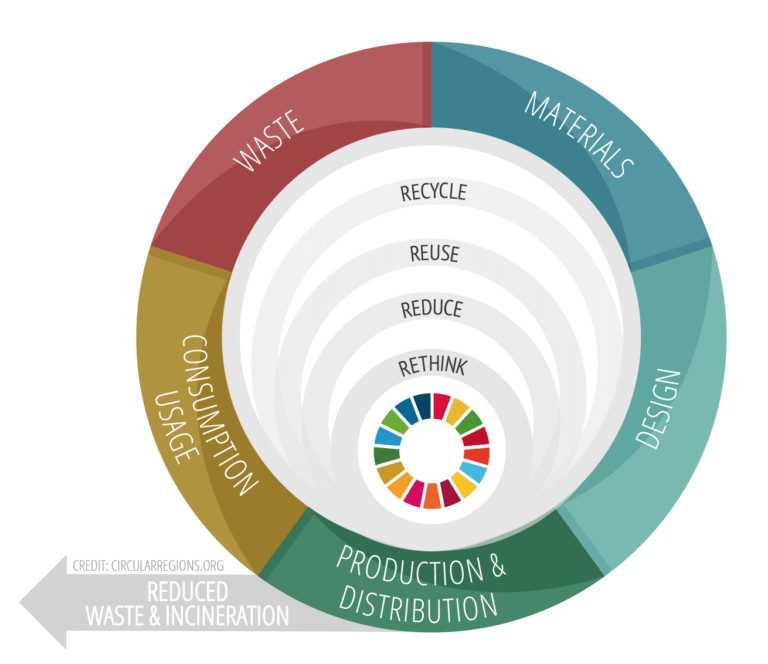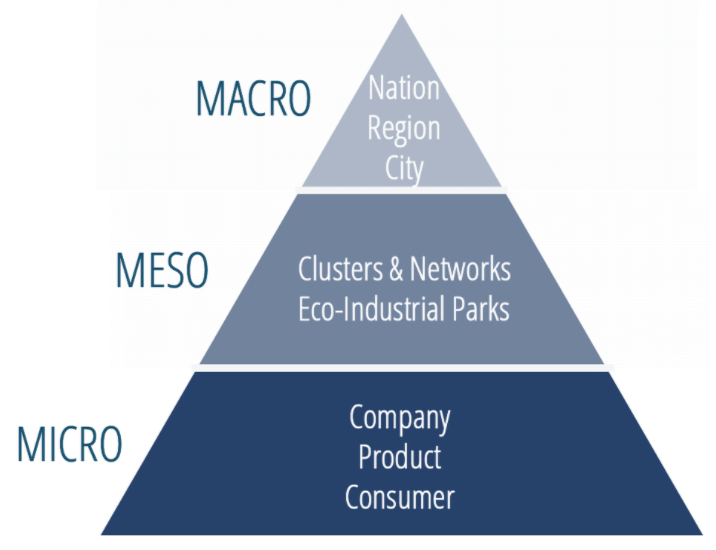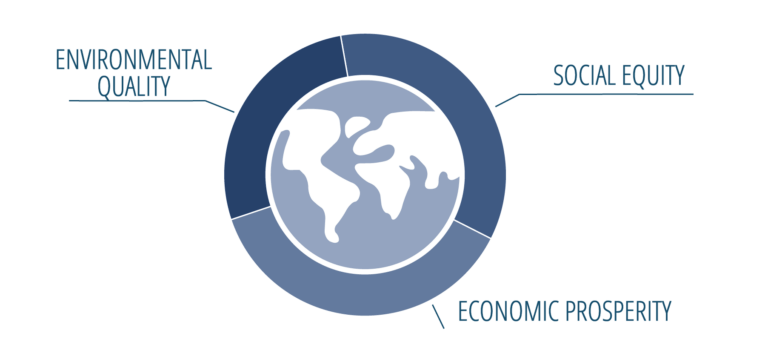What is the Circular Economy?

It is an economic system based on business models which replace the “end-of-life” concept throughout all of the material life cycle phases…
…operating at:
the micro level: products, companies, consumers
the meso level: eco-industrial parks, networks and clusters
and the macro level: city, region, nation and international…

…with the goal of sustainable development, which implies environmental quality, economic prosperity and social equity, for the benefit of current and future generations.

Prior to developing new strategies, policies and recommendations for a city, region or territory, research clearly states that understanding what is already happening in the Circular Economy in a region is the first step to accelerating it.
An analysis of 114 definitions of the Circular Economy helped conceptualise the concept
Some notes on the analysis :
- It was the first comprehensive and systematic analysis of circular economy (CE) definitions
- some definitions mistake CE as recycling
- link to sustainable development (particularly social equity) is weak
- it is oftentimes not highlighted that CE necessitates a systemic shift
- its impact on social equity and future generations is rarely mentioned
- neither business models nor consumers are frequently outlined as enablers of the circular economy
- the variety of understandings can result in CE concept eventually collapsing or ending up in conceptual deadlock.
